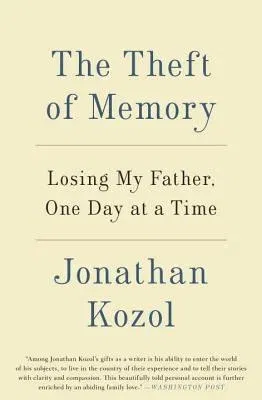A Library Journal Best Book of 2015
National Book Award winner Jonathan Kozol is best known for his fifty
years of work among our nation's poorest and most vulnerable children.
Now, in the most personal book of his career, he tells the story of his
father's life and work as a nationally noted specialist in disorders of
the brain and his astonishing ability, at the onset of Alzheimer's
disease, to explain the causes of his sickness and then to narrate,
step-by-step, his slow descent into dementia.
Dr. Harry Kozol was born in Boston in 1906. Classically trained at
Harvard and Johns Hopkins, he was an unusually intuitive clinician with
a special gift for diagnosing interwoven elements of neurological and
psychiatric illnesses in highly complicated and creative people. "One of
the most intense relationships of his career," his son recalls, "was
with Eugene O'Neill, who moved to Boston in the last years of his life
so my father could examine him and talk with him almost every day." At a
later stage in his career, he evaluated criminal defendants including
Patricia Hearst and the Boston Strangler, Albert H. DeSalvo, who
described to him in detail what was going through his mind while he was
killing thirteen women.
But The Theft of Memory is not primarily about a doctor's public life.
The heart of the book lies in the bond between a father and his son and
the ways that bond intensified even as Harry's verbal skills and cogency
progressively abandoned him. "Somehow," the author says, "all those
hours that we spent trying to fathom something that he wanted to
express, or summon up a vivid piece of seemingly lost memory that still
brought a smile to his eyes, left me with a deeper sense of intimate
connection with my father than I'd ever felt before."
Lyrical and stirring, The Theft of Memory is at once a tender tribute
to a father from his son and a richly colored portrait of a devoted
doctor who lived more than a century.

